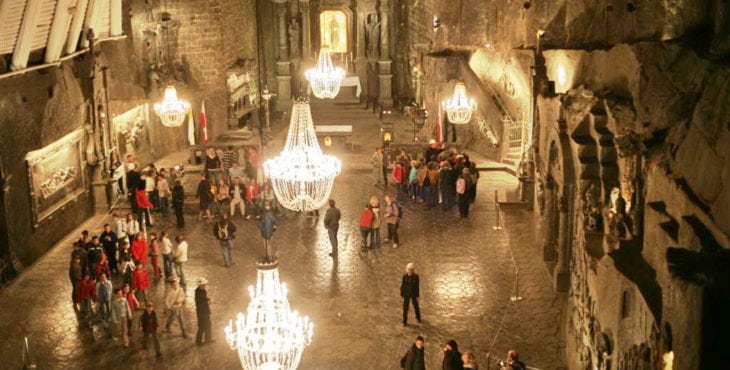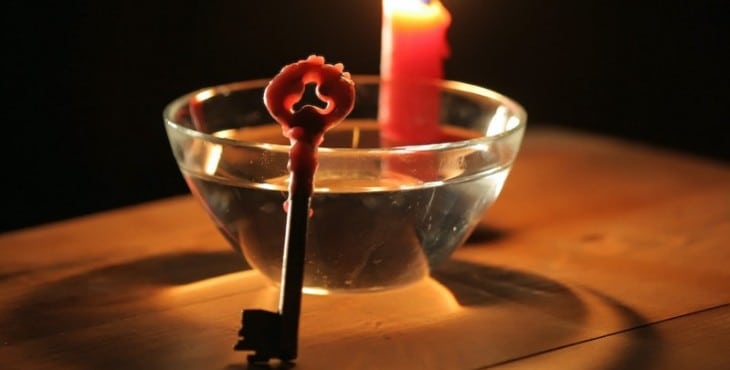Every year more and more expats decide to look for a job and pursue their career in Poland. Reasons for it vary but certain is that the unemployment rate is low, the average salary in Poland is increasing and the cost of living stays fairly low. However, obtaining the necessary work permissions for non-EU citizens can be quite a complicated and tricky process. There are a few different ways of obtaining a work permit and on top of that, there are alternative paths you can take in order to work in Poland legally (e.g. obtaining temporary residence and work permit together). In this article, we will go through all the legalities, documents, application process and difference between alternative methods of obtaining your work permit in Poland.
Do I need a work permit to legally work in Poland?
Let’s start with the most fundamental question. Do you need a work permit? Poland is part of the European Union, therefore, citizens of EEA countries (EU + Norway, Liechtenstein, Iceland and Switzerland) can work in Poland without any special permits and bureaucratic hassle. If you are a lucky citizen of one of these countries you can finish reading here and start looking for a job or start thinking about establishing your own business in Poland.
If you are a citizen of Armenia, Belarus, Georgia, Moldova, Russia or Ukraine you don’t need to apply for a work permit if you are intending to work in Poland for no longer than 6 months per year (please note that your employer needs to fulfil some legal obligations like registering in a local labour office the fact that you are hired as a seasonal worker).
Finally, if you are a citizen of any other country you will need to apply for a visa (or residence permit) and work permit in order to work legally in Poland. As always, there are a few exceptions to this rule. In the following cases a work permit is not required:
- You already have a document allowing you to work legally in Poland, e.g.
- When you have a permit to settle in Poland
- When you hold a permit for a long-term resident of the European Communities
- When you are the spouse or a former spouse of a Polish citizen, provided that they have a residence permit for Polish territory.
- When you have a valid Polish Card
2. You are in Poland because of education
- When you study in Poland (read more about working rights of foreign students in Poland here)
- When you have a permit for temporary residence in the territory of Poland, granted in relation to the conduct of research in Poland, on the basis of an agreement with the Polish scientific institution
- When you participate in cultural or educational exchange programs, humanitarian aid programs or developmental or summer work programs for students approved by the government
3. Other cases
- When you have a refugee status granted in Poland
- When you have been granted residence permit for humanitarian reasons
- When you have been granted subsidiary protection in Poland
- When you are holding a permit for a tolerated stay in Poland
- When you are benefiting from temporary protection in Poland
You can see a more detailed list of cases when a work permit is not required on the government website here.
Please note that if you are staying in Poland because of temporary protection or humanitarian reasons you can’t legally work in Poland.
Work permit in Poland
Obtaining a work permit in Poland can be a tricky thing but before we get to it, let’s clarify a couple of topics. To legally work in Poland you need to not only have a work permit but also legalise your stay. These are two different legal matters and should not be confused. By obtaining a visa or a residence permit you can legally stay in Poland, but it doesn’t mean you can work.
To legally work in Poland you need a work permit and this document can only be granted based on a request from your future employer. In other words, you can’t apply for a work permit yourself. This is the most tricky part of the process as you need to first find a job and an employer who is willing to hire you.
Work permit application process
Let’s assume that you have found an employer who is willing to hire you and your stay is legalised (based on either a visa that you obtained or a residence permit). In order to get a work permit, your future employer needs to fill out a work permit application that includes the name of the company that is hiring you and your future job title within this company. This has huge implications as your work permit is only valid for the given company and position. If you decide to leave your company you lose your work permit and similarly, if you want to get a new job your new employer will have to go through the process of applying for a new work permit for you.
There are six different types of work permits:
A – when a person is employed in a company based in Poland
B – when a person performs a function in a management board or acts as a general partner or a proxy
C – when a person is working for a non-Polish employer but is delegated for more than 30 days to a branch or facility located in Poland
D – when a person is working for a non-Polish employer and is delegated to Poland for the purpose of executing a service, e.g. export service
E – when a person is working for a non-Polish employer and is delegated to Poland for a time longer than 3 months within the next 6 months for a purpose other than those previously stated
S – seasonal work permit that got introduced on the 1st of January 2018. Seasonal work permit is issued by Staroste upon a request from an employer. Please note that after the 1sth of January 2018 seasonal work will be permitted only on the basis of a seasonal work permit.
Work permits are issued by a local “voivode” (government head of the land) and it’s issued for the time of the stay required to undertake the work which is specified in your employer’s declaration. For the work permit to be valid you need to sign an employment contract with the employer who applied for your permit.
Your employer is legally obliged to:
- Provide the employment contract in writing
- Provide you with a translation of the employment contract in a language that you understand
- Check validity and make a copy of your residence permit or visa
- Notify social security and health insurance institutions within 7 days after the employment contract is signed (that gives you the right to free healthcare, sickness leave and other social benefits)
How much does a work permit application cost?
As your future employer is applying for the work permit for you, there are no additional fees that you have to pay. However, you will have to pay for the visa or residence permit application if you don’t have it.
Work permit considerations
To summarise, the work permit allows you to legally work in Poland if:
- you have legalised your stay (you have a valid visa or residence permit)
- your employer obtained a work permit for you
- you perform work defined in your work permit
- you have signed an appropriate contract with your employer
You can only work for the employer indicated in your permit and the process heavily depends on your future employer. However, there is another way that may be more beneficial for you – the temporary residence and work permit that can be applied for at the same time.
Temporary residence and work permit – alternative to the work permit route
Earlier we made a distinction between legalising your stay and being able to work legally in Poland. In other words, you first have to apply for a residence permit or visa and then find an employer who is willing to hire you and apply for the work permit for you. However, there is another way – you could apply for a temporary residence and work permit at the same time so you kill to birds with one stone. Going down this path means that you are in control of your application process and don’t have to rely on the employer.
Similarly to the work permit process, you need to find an employer who is willing to hire you. They will need to prove that hiring you is justified and based on the labour market test (in other words, they need to show that there are no unemployed Polish citizens who can perform your future role). The result of the labour market test need to be attached to your application. Additionally, your future employer needs to sign a preliminary employment contract with you.
Here you can find all the necessary documentation needed to apply for the temporary residence and work permit. You can download a temporary residence application here.
How long is the temporary dence and work permit residence valid for?
Your temporary residence and work permit can be valid up to 3 years, but the validity depends on the employment contract itself. If your employer decides to employ you for one year, then your residence and work permits are valid for that time. In case you decide to get a new job you will have to go through the whole process again.
How much does temporary residence and work permit application cost?
To apply for the temporary residence and work permit when you are going to be hired as an employee you will need to pay 440 PLN for the stamp duty and an additional 50 PLN for the residence card. If you are going to manage a Ltd company, a joint-stock company or manage shares or stocks (that don’t belong to you) you will have to pay 340 PLN stamp duty and additional 50 PLN for the residence card.
Final tips
Irrespectively of the path you decide to take (applying for a work permit or a temporary residence and a work permit), there are certain do’s and don’ts that you should follow to make sure you don’t get yourself in trouble. Especially:
- Never give anyone your passport or identity card.
- Make sure you receive a copy of your work permit (or in case of seasonal work the certificate of entry of an application into the seasonal work register), this is your legal right and it’s important you keep these documents safe.
- If you are sorting out your work permit remotely you can check the details of your future employer online and make sure they are legit. You can do it online via the official government website if you know the REGON number of the company (this is the national business registry number) or on the National Court Register website if you don’t.
- f you are using a work agency check them online, look for reviews and make sure other expats are happy with them.
If you require any further legal advise for your work permit / VISA application you can contact us via our legal advise form.
[fbcomments url=”http://www.foreignersinpoland.com/get-work-permit-poland/” width=”100%” count=”off” num=”5″ countmsg=”wonderful comments!”]




















































